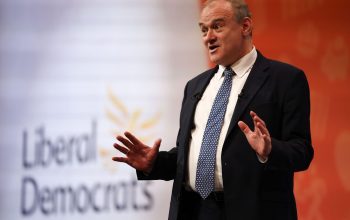In an effort to cut crime rates and curb alcohol abuse the government has announced that from April next year drinks will no longer be sold below the price of “duty plus VAT.”
The new measures will stop retailers from selling a litre bottle of vodka for less than £10.71, a bottle of wine for less than £2.03 and a 440ml can of lager for less than 38p.
The Home Office said: “reviews found that pricing controls can be an effective way of both improving public health and reducing violent crime.”
In 2010 the Coalition Government made a number of commitments in relation to alcohol pricing. The ban on the sale of alcohol below cost price is considered the “first step” in a scheme which is hoping to lessen the social impact of the drink to get drunk culture.
The “second step” is to review alcohol pricing per unit in an effort to “tackle binge drinking without unfairly penalising responsible drinkers, pubs and important local industries”.
In a review the Home Office stated that it was unable to draw conclusions of how the changes in prices would affect those on low-incomes as “all income groups” purchase cheap alcohol.
Supporters of the scheme are hoping to see a further 50p-per-unit minimum introduced, but studies have revealed that people are already sceptical of the minimum pricing.
Tests conducted by Alcohol Research UK revealed that there is extensive public opposition to setting a minimum price for alcohol.
Focus groups have doubts over the effectiveness of the scheme as a method of reducing alcohol consumption; in particular, as the policy was believed to unfairly punish ‘sensible’ drinkers.
Statistics from The Wine and Spirit Trade Association (WSTA) demonstrate that responsible drinking in the UK is improving, with a decline in underage and binge drinking.
The WSTA stated that although it “welcomed” the government’s plans for ending below cost sales, it would “continue to oppose minimum pricing” and said that the policy would “be wrong both in principle and in practice.”
“It would penalise all consumers, especially families on low incomes and pensioners, rather than targeting problem drinkers. It would harm businesses, distort trade and is likely to be illegal under UK and EU law.”
Doctors have asserted that only by excessively elevating prices will those who are reliant on alcohol be affected sufficiently.




